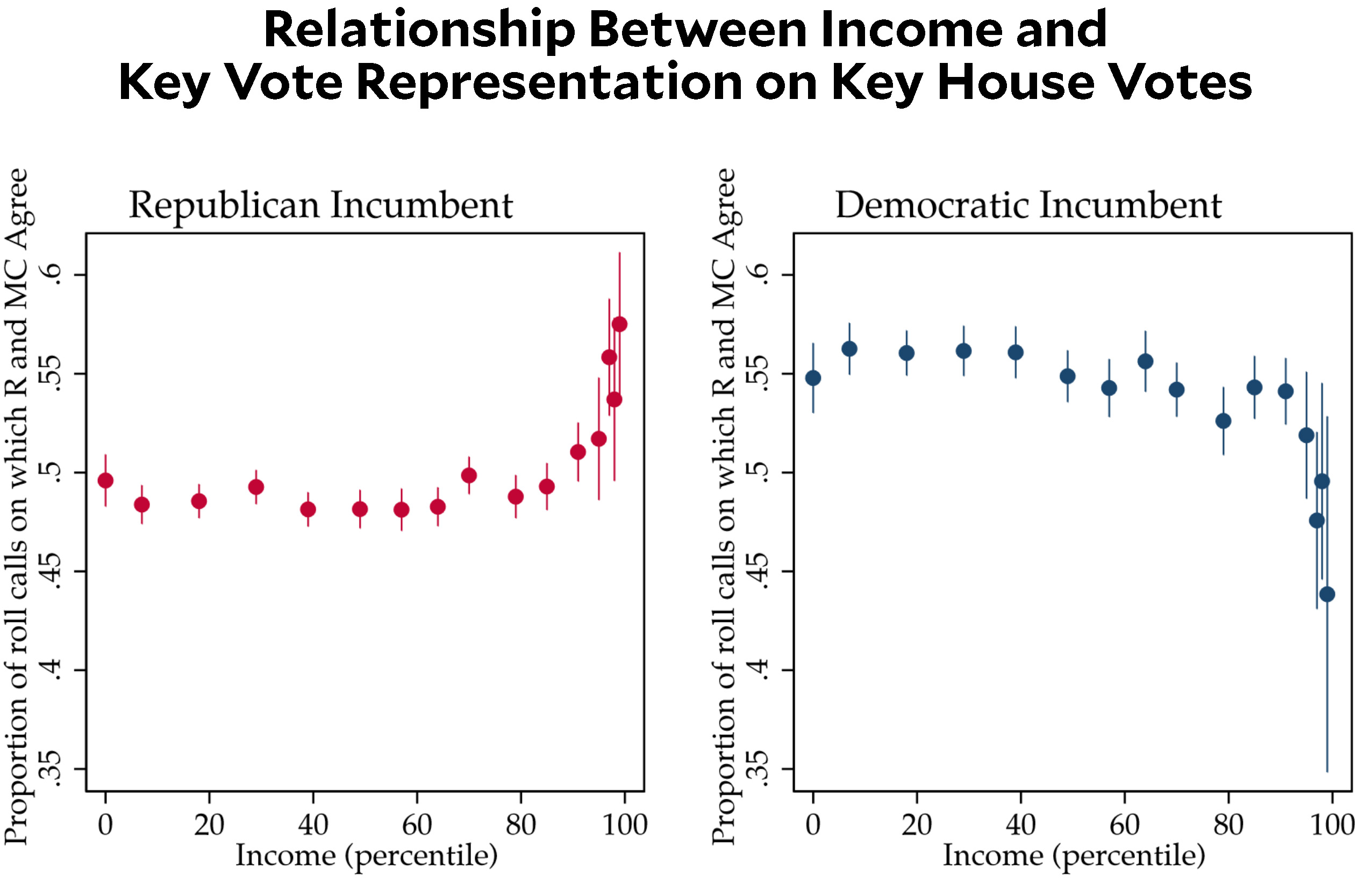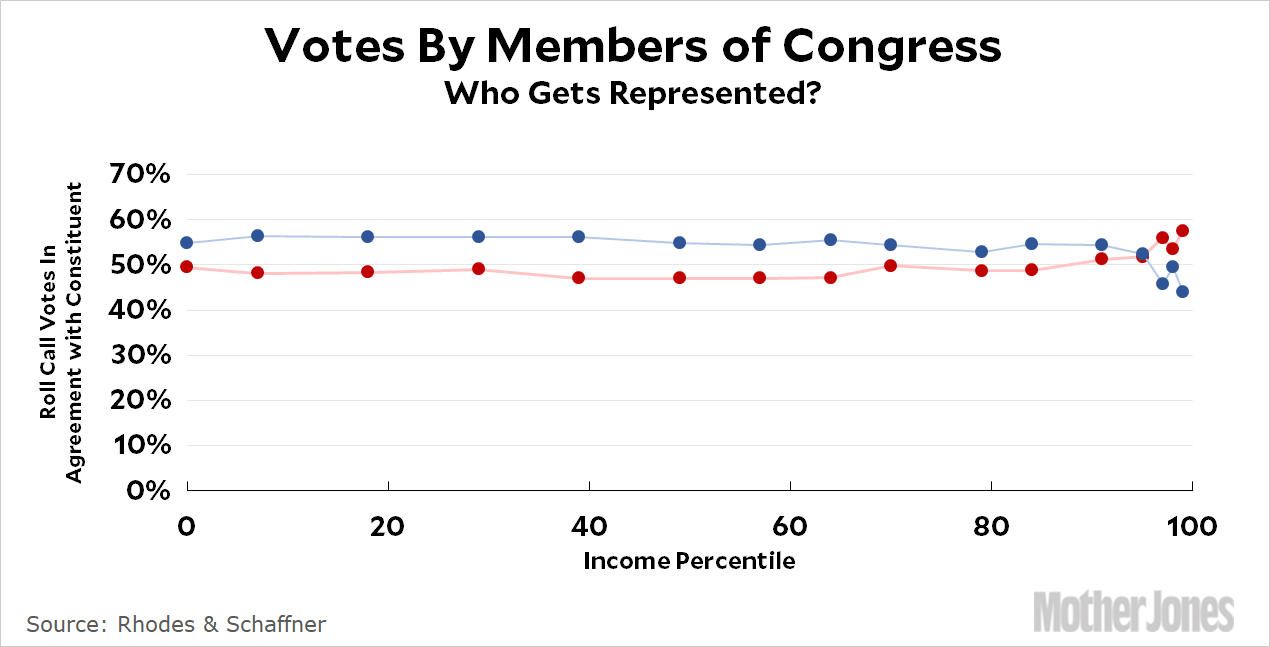Here’s some political science geekery combined with some chart geekery. Dylan Matthews has a post up today about a recent paper that compares public opinions on key issues with votes cast by members of Congress. How well do members of Congress represent the views of their constituents? Here’s the chart in the paper:

Basically, it looks like everybody at all income levels gets represented about the same until we get to the very tippy top. The views of rich people get represented a lot better by Republicans and a lot worse by Democrats. But there are two things that make these charts a little misleading. The first is our old friend the y-axis: it goes only from 35 percent to 60 percent, which makes the upward and downward spikes look sharper than they are. The second is the error bars: they get pretty big at the high-income end of the charts, which makes the size of the upward and downward spikes ambiguous. Visually, however, they add to the effect that the spikes are big. Here’s a redrawn version of the charts:

It’s a judgment call which one of these best represents the data visually, but I suspect it’s the second one. The views of most constituents don’t matter much at all, while the rich wield a very modest influence. Republicans represent rich people about 7 percent better than everyone else, while Democrats represent them about 8 points worse. That’s not much.
A different paper suggests that members of Congress respond mostly to interest groups, not constituents, but in the end Matthews concludes that we might be making a mistake in thinking that Congress represents constituent views at all:
It’s not actually clear that Republican and Democratic senators are purposefully taking their views from the public, even when politicians’ views match their constituents’. It’s also possible — even likely — that it’s happening the other way: Politicians are shaping the public’s views. That helps explain why Democratic constituents align their views so closely with Democratic senators, and similarly for Republican constituents.
….“Longstanding political science suggests that the path of information from governing elites to the public is stronger than the reverse,” Grossmann and Isaac note. “More troubling, affluent Americans may hear official opinions first, meaning we would observe a greater association between their opinions and policy even if the true channel of influence were from government to the affluent.”
Bottom line: members of Congress form their views, which are then communicated to their constituents. Only then do constituents form their own views: conservatives adopt the Republican view and liberals adopt the Democratic view. This would explain a number of things:
- Why conservative voters continue to think that Republicans are better on pocketbook issues despite their long history of catering to the rich.
- Why voters line up so neatly even on obscure issues that don’t have an obvious ideological component (net neutrality, for example).
- Why views on issues can reverse so quickly when elite views reverse (Trump on Russia, for example).
Naturally this doesn’t apply to me or to any of the fine people who read this blog, all of whom are independent thinkers who don’t just follow the crowd. But all those other guys? What a bunch of sheep.














